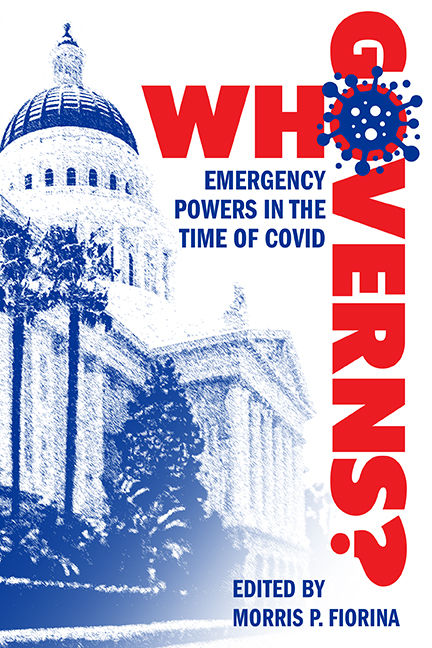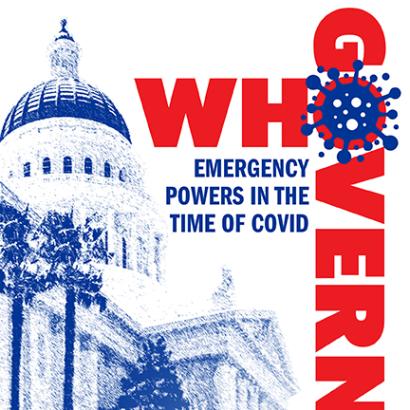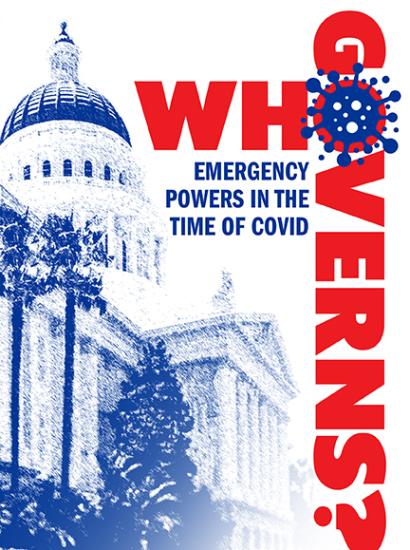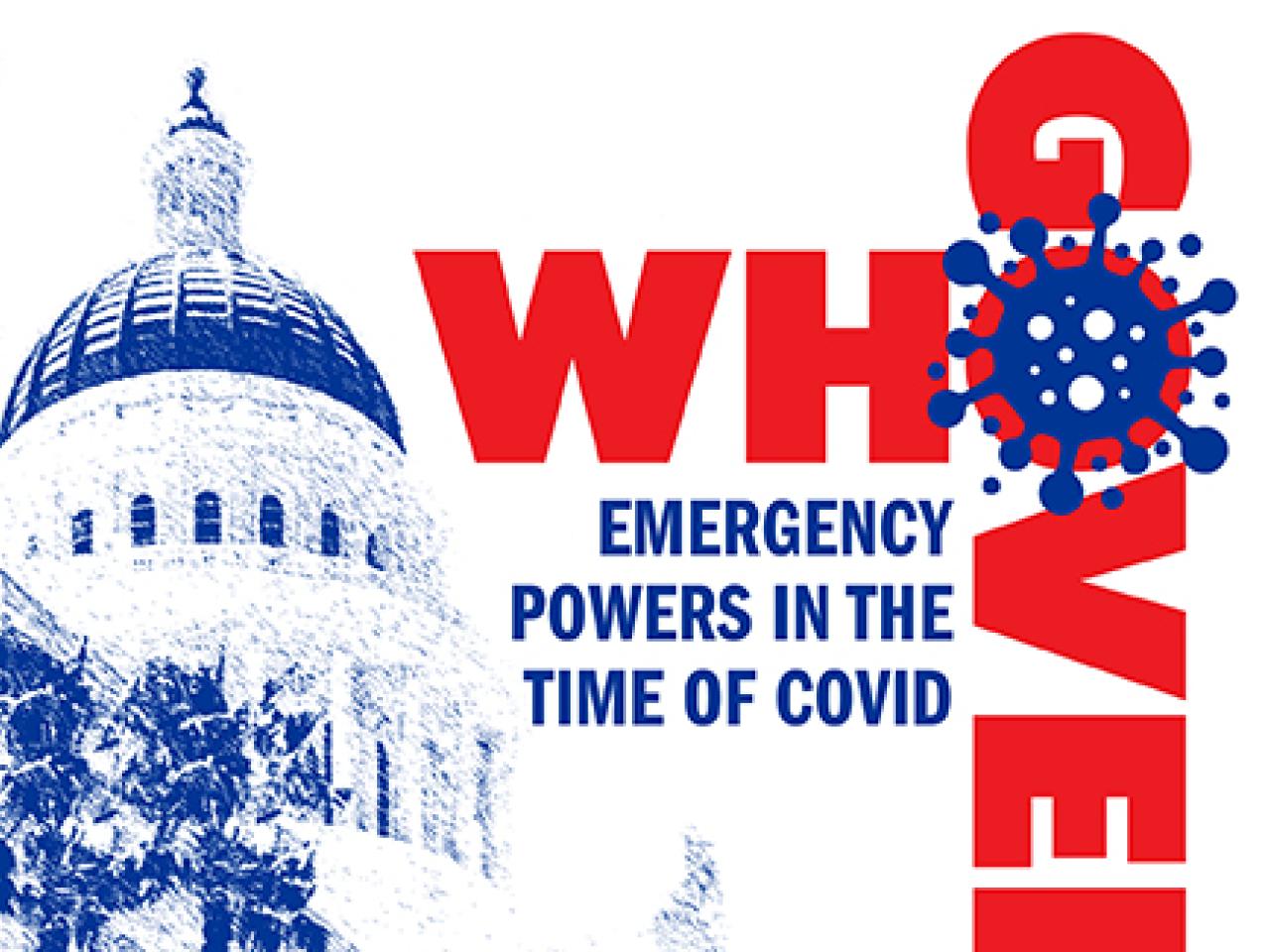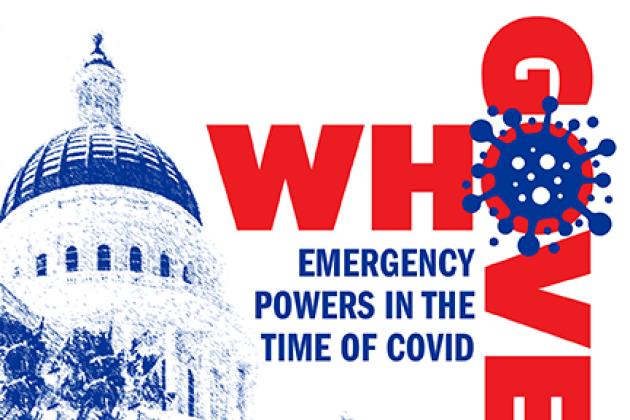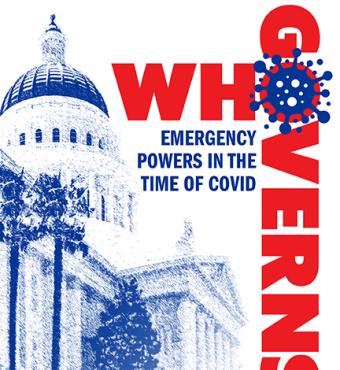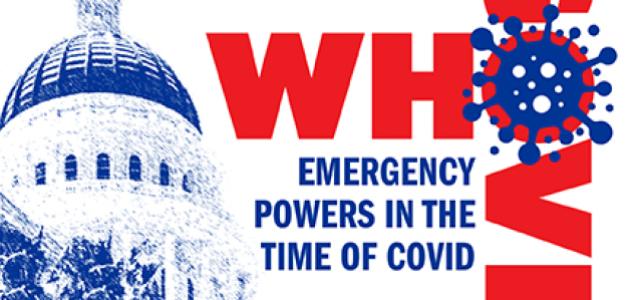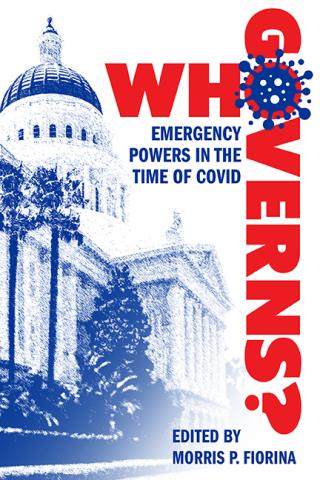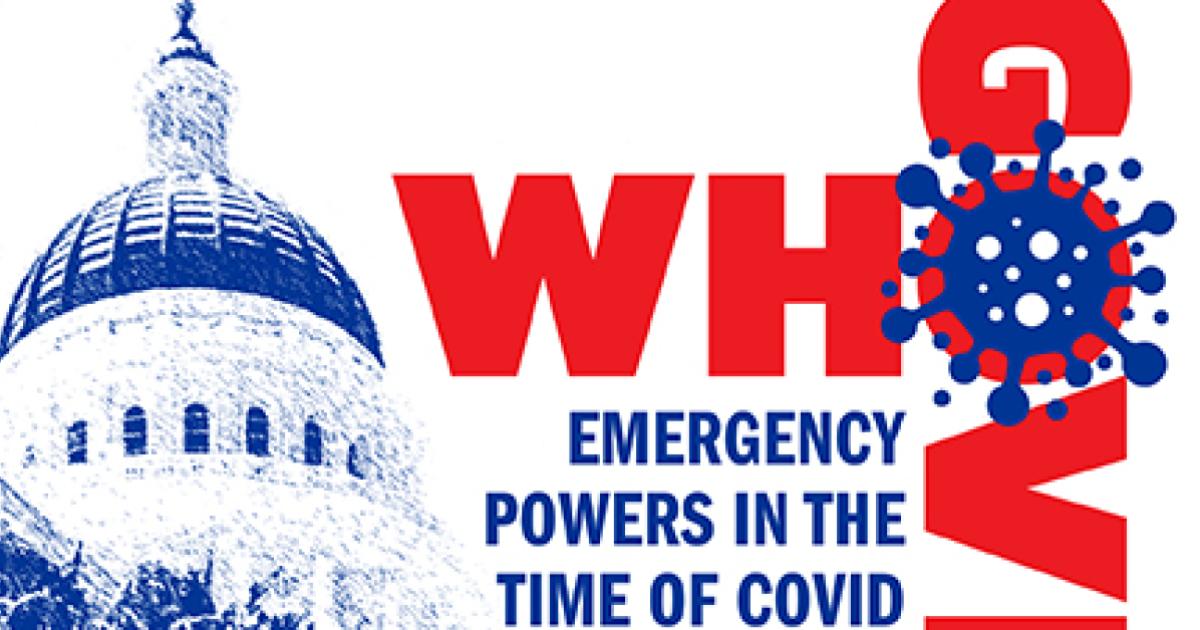Hoover Institution (Stanford, CA) – The Hoover Institution has released Who Governs? Emergency Powers in the Time of COVID, a new volume that addresses the extraordinary emergency authority exercised by American states during the COVID-19 pandemic beginning in 2020.
Senior Fellow Morris P. Fiorina, who edited the volume, and the book’s contributors consider the questions that the utilization of emergency powers raises for a society in which the legitimacy of authority derives from the consent of the governed. They demonstrate how these powers have been implemented by, in many cases, unelected public health officials; examine how courts, legislatures, and the public have responded to the use of such power; and analyze the resulting tensions exerted on democratic governance.
Importantly, this book does not question the efficacy of public health restrictions. Instead, it considers who in a constitutional democracy, has the legitimate authority to weigh or take actions, including suspending economic activity or limiting personal freedom, during periods of emergency.
Contributing scholars, including experts in political science, democratic governance, and jurisprudence, provide background on the legal justification for emergency powers and offer summaries of the executive orders that were in effect as of 2020 across the United States and its territories, with special attention paid to California and Texas.
Contributors also examine the role of federalism in helping or hampering policy responses tailored to local conditions; review public attitudes about the dangers of the coronavirus and appropriate responses to the deadly disease; and raise further questions about emergency powers and democratic governance—questions that deserve serious consideration about what is right, lawful, and just before the next emergency prompts another exercise of enormous governmental power.
About the Editor
Morris P. Fiorina is the Wendt Family Professor of Political Science at Stanford University and a senior fellow of the Hoover Institution. His most recent book was Unstable Majorities (Hoover Institution Press, 2017).
Contributors
Cameron DeHart, Emily M. Farris, John Ferejohn, Morris P. Fiorina, Mirya R. Holman, Didi Kuo, David L. Leal, Victoria Ochoa, Miranda Sullivan, Yiqian Alice Wang
Advance Praise for Who Governs?
“Who governs the United States in an emergency, and with what limits and what authority? This fascinating study shows the answer is not simple but varies with time, location, type of emergency, and the party in power. With novel data and fresh wisdom, this is a pathbreaking guide to what likely will be a recurrent problem in American politics.” —Jack Goldstone, Hazel Professor of Public Policy, George Mason University
“Fiorina and his co-authors fittingly ask who should shout ‘Emergency!’ in a crowded city—unelected public health officials, mayors, governors, legislators, or courts? By describing the crazy quilt of state and local emergency powers, their problematic definitions, and the questions of accountability and representation surrounding their use, Who Governs? convincingly makes the case for rethinking how and when we employ emergency powers.” —Henry E. Brady, Professor of Political Science and Public Policy, UC Berkeley
“Officials at the federal, state, and local levels have recently invoked extraordinary emergency powers that most of us did not know they even had, at the cost of democratic accountability, individual liberties, separation of powers, and administrative regularity. That is okay—it is necessary—for once-in-a lifetime events. But this book’s examination of COVID emergency powers raises the question: Will government by emergency decree become the new normal?” —Michael W. McConnell, Richard and Frances Mallery Professor, Stanford Law School, and director, Stanford Constitutional Law Center
Click here to purchase the book.
For coverage opportunities, contact Jeffrey Marschner, 202-760-3187, jmarsch@stanford.edu.







